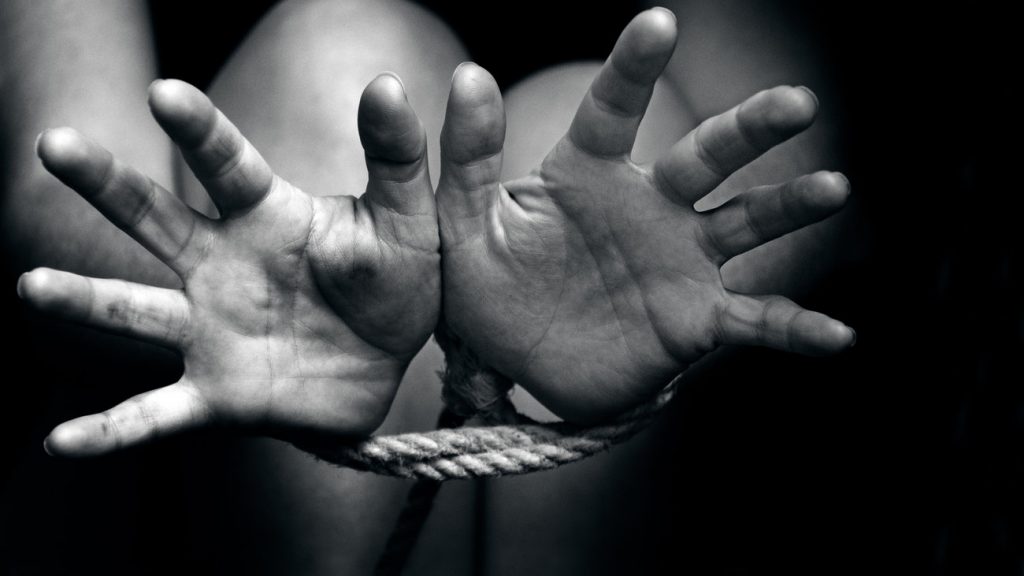
No fewer than 939 students have been kidnapped from different secondary schools and tertiary institutions across the federation between December 2020 and May 2021, a new survey that tracks kidnapping incidents in schools has revealed.
With the rising incidents of students’ abduction, Global Rights, a Washington-based human rights organisation, asked the federal government to audit the Safe School Initiative, a $30 million project initiated under the Goodluck Jonathan administration to protect schools nationwide.
The organisation yesterday released the report of its study to THISDAY, graphically showing the trajectory of mass abduction that occurred in secondary schools and tertiary institutions from December 2020 and May 2021.
Boko Haram, an Islamic terrorist organisation, kidnapped 276 girls from the Government Girls Secondary School at Chibok, headquarters of Chibok Local Government Area (LGA), Borno State on April 14, 2014.
Consequently, the Global Business Coalition for Education, a movement of businesses committed to ending the global education crisis, unveiled the Safe School Initiative in Nigeria in May 2014 with $30 million to prevent the recurrence of armed invasion into schools nationwide.
The Jonathan administration supported the Safe School Initiative with N2 billion before he handed over to President Muhammadu Buhari in May 2015.
But the Buhari administration did not prioritise the implementation of the initiative despite the frequency of armed invasion into and mass abduction in schools, forcing the House of Representatives to launch a probe into the initiative
The abduction of students had continued in different parts of the federation, compelling Global Rights to kick off campaigns against mass abduction and killing under the hashtags: #NigeriaMourns, #NigeriaBleeds and #SecureNigeria.
Tracking mass abduction in schools, the survey revealed that a group of gunmen invaded Olagua Primary School, Ohordua, a town in Esan South East Local Government Area (LGA), Edo State on December 1, 2020, abducting one teacher.
Similarly, on December 8, 2020, the survey showed that two teachers in Ohorhe Secondary School, Effurun, the headquarters of Uvwie LGA, Delta State, kidnapped at least two teachers in the school.
The incident of December 11, 2020, according to the survey, was more tragic with the invasion of the Government Boys Science Secondary School, Kankara, Kankara LGA and the consequent abduction of 333 students from the school.
Precisely one week after the Kankara incident, the survey revealed that bandits struck again in Katsina State on December 19, 2020, abducting 84 students in Hizburrahim Islamiyya, Mahuta village, Dandume Local Government Area.
In Niger State, bandits invaded Government Science College in Kagara, the headquarters of Rafi LGA on February 17, 2021, leading to the abduction of at least 42 persons comprising 27 students, three staff members and 12 of their relatives.
On February 26, 2021, bandits invaded the Government Girls Science Secondary in Jangebe, a community in Talata Mafara LGA, Zamfara where they kidnapped at least 279 students.
On March 11, as the survey revealed, the bandits forced their way into the Federal College of Forestry Mechanisation in Afaka, a town in Igabi LGA, thereby kidnapping at least 39 persons.
Also, the survey showed that the bandits invaded Greenfield University in Kasarami Village, Chikun Local Government, Kaduna State on April 20, 2021. The bandits eventually left the campus with at least 23 students of the university, five of whom were murdered due to the inability of the students to pay ransom.
On May 30, 2021, according to the survey, Salihu Tanko Islamic School in Niger State came under attack. Consequently, 136 students were kidnapped in the school, which reinforced a public conclusion that President Muhammadu Buhari had failed to discharge his responsibility under section 14 of the 1999 Constitution.
Under Section 14(2)(b-c), precisely, the Constitution states that the security and welfare of the people shall be the primary purpose of government and the participation by the people in their government shall be ensured in accordance with the provisions of this Constitution.
With this ugly trend nationwide, the Executive Director of Global Rights, Abiodun Baiyeku challenged President Buhari to take urgent steps to fulfil his constitutional obligation of securing the safety and wellbeing of learners across Nigeria.
Baiyeku, also, challenged the federal government to initiate a multi-stakeholder audit of the Safe Schools Initiative to ascertain $30 million raised with the support of foreign governments and private sector leaders to help secure schools.
From recent trends, the executive director observed that it was that the federal government “has failed to take concrete measures in fulfilment of the initiative’s mission, and failed to justify/ account for the resources devoted to it.
“From 2014 to date, mass school abductions gradually became the norm in Northern Nigeria, and soon the Chibok girls lost their poster children position for school abductions as mass abductions spread to other parts of the country.
“In the past 6 months, the abduction of learners has grown astronomically in Nigeria. Between December 2020 and May 2021, at least 939 students were kidnapped bringing to mind again the strategies outlined in the Safe School Initiative.
“The very salient question is: What happened to the money dedicated to protecting schools in Nigeria? Have CCTVs been installed at the schools across the federation? Have high perimeter fences been constructed with adequate security personnel provided, most of these abductions may have been prevented?
“If Nigeria continues in this trajectory, it will undoubtedly retain its global position as having the highest number of out of school children in the world, and jeopardize the future that it badly needs to secure for its teeming population, most of whom fall within school age,” the executive director said.
She, thus, asked the federal government to make public disclosure of its interventions to secure schools, urgently rally stakeholders around the critical need to protect learners of all ages, and address the general spate of

